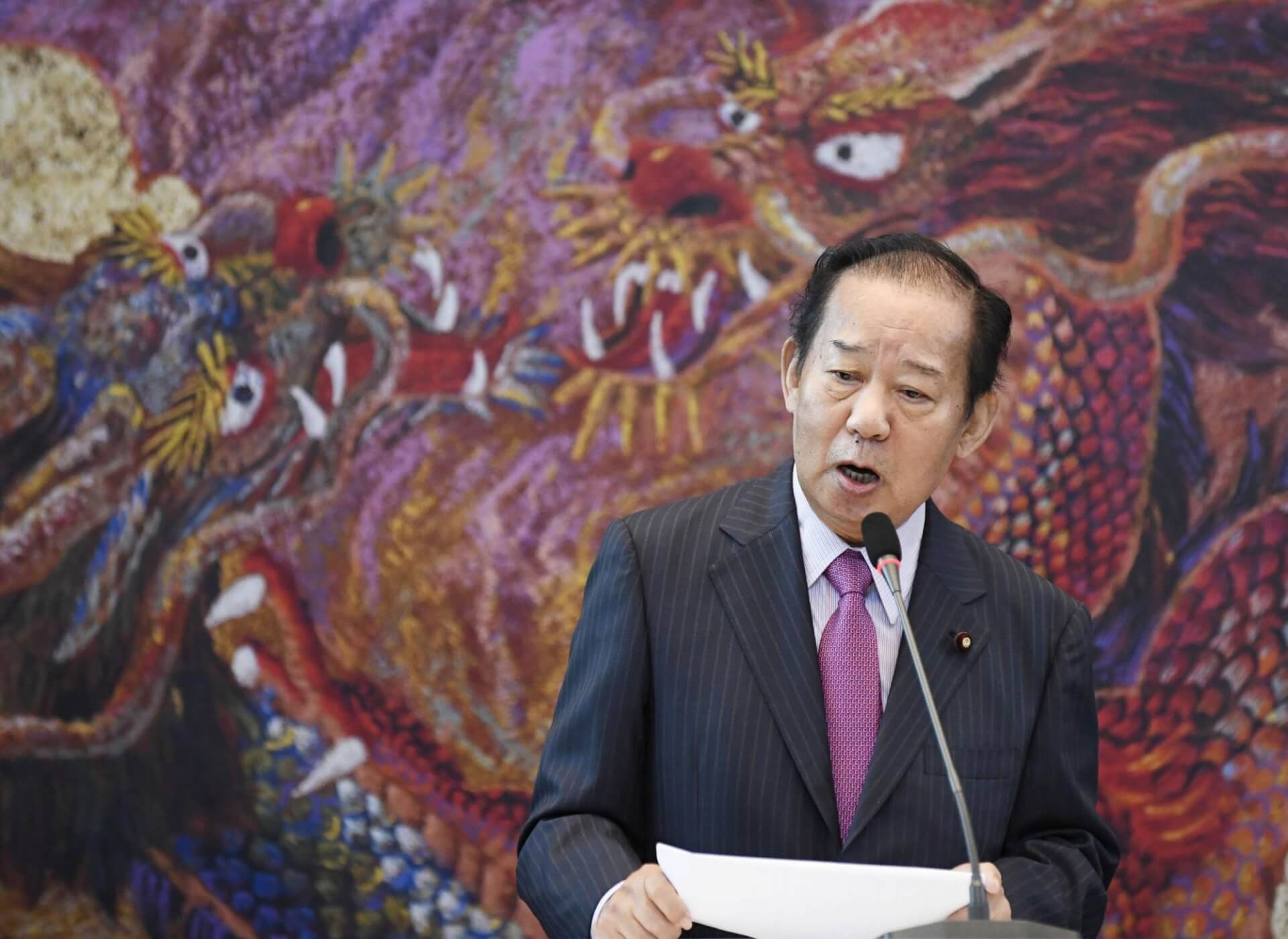The Secretary-General of Japan’s ruling Liberal Democratic Party (LDP), Toshihiro Nikai, proposed an outlandish idea of allowing five female lawmakers to attend senior board-level meetings, so long as they do not talk. At present, the board-level meetings can only be attended by men.
The LDP, which has been in power almost exclusively since 1955, has long been criticized for failing to empower women in politics. In fact, just two of the LDP’s 12-member board are women and just three of its 25-member general council. Overall, only 46 of the 465 (or 10%) of the politicians in Japan’s Shugiin, or House of Representatives, are female, compared to the 25% global average.
Nikai’s comments closely follow recent sexist comments by the president of the Tokyo Olympics organising committee, Yoshiro Mori, who is incidentally a member of the LDP and a former prime minister. Speaking on his tenure as the chairman of the Japan Rugby Football Union, Mori said, “Women have a strong sense of rivalry. If one raises her hand to speak, all the others feel the need to speak, too. Everyone ends up saying something.” He went on to say, “We have to make sure their speaking time is restricted somewhat - they have difficulty finishing.”
Mori has since said that he is “deeply remorseful” for his “careless” and “inappropriate” comments. It is expected that he will be replaced in the next few days but, even so, only eight of the Olympic committee’s executive board’s 38 members are women.
A number of female lawmakers protested against Nikai’s comments by wearing white, calling on the government to act swiftly. In fact, Tokyo Governor Yuriko Koike refused to attend a meeting of Olympic officials. Similarly, female lawmakers in the ruling LDP called on the party to increase the number of women in senior positions.
In response to this request, Nikai suggested offering observer status to five female lawmakers in board-level meetings. He said, “It is important to fully understand what kind of discussions are happening,” adding, “Take a look, is what it is about.” Under his proposal, women would not able to speak during the board meetings and would instead have to submit their comments to the secretariat office in writing.
Opposition lawmakers have denounced Nikai’s suggestion, saying it is nothing more than a “field trip” for women.
The exclusion of women in all walks of life in Japan has been an ongoing issue for decades. In fact, Japan ranks 121st out of 153 countries studied in the World Economic Forum’s 2020 Global Gender Gap Index. Although former Prime Minister (PM) Shinzo Abe campaigned to increase women’s participation in the workplace and in politics, the problem remains unaddressed. In fact, Abe’s target of increasing female labour force participation in the government and private industry to 30% by 2020 was deemed to be an “impossible” goal and was extended to 2030.
This overt sexism is driven in part by the fact that much of Japan’s leadership is comprised of old men, who typically espouse more conservative and traditional outlooks on life. Olympics chief Mori, for example, is 83 years old, while the Secretary-General of the LDP, Nikai, is 82. Similarly, PM Shinzo Abe resigned at the age of 65 last September, but was replaced by Yoshihide Suga, who is 72.
Keeping this in mind, some experts, like Belinda Wheaton, a cultural sociologist at the University of Waikato in New Zealand, have asked, “Why it is that we feel that men in their 70s or 80s are able to fulfill these roles better versus a man in their 40s or 50s, or a woman?”
Japan’s Ruling LDP Invites Women to Attend Board-Level Meetings, Provided They Don’t Talk
The Secretary-General of Japan’s ruling Liberal Democratic Party, Toshihiro Nikai, suggested offering observer status to five female lawmakers in board-level meetings, so long as they don’t talk.
February 18, 2021

IMAGE SOURCE: KYODO VIA THE JAPAN TIMESLiberal Democratic Party Secretary-General Toshihiro Nikai
